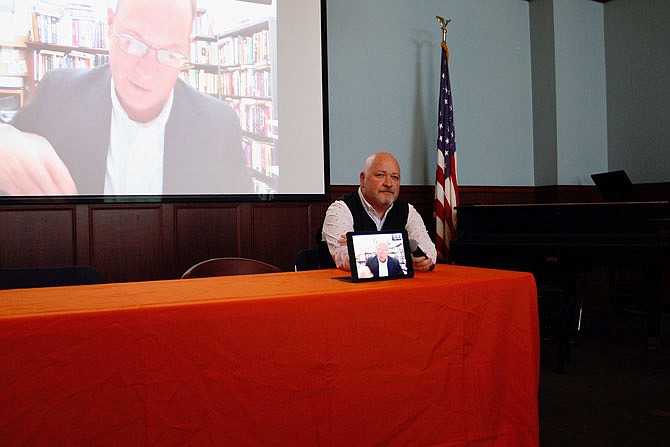Westminster College hosted a panel Friday to remind young students of the impact of the Cold War on American life.
Mark Boulton, chair of Westminster's history department, and political science professor Tobias Gibson organized the event to emphasize how the conflicted changed American society. The different topics discussed included American masculinity, football, race relations, an increase of gun ownership, and the ebbs and flows of the freedom of speech.
"Having grown up in that era, there's so many ways American life was impacted that many of our students wouldn't be able to recognize," Boulton said.
Panelist Kurt Kemper presented on the correlation between the growth in popularity of football and the Cold War. Kemper said mental and physical weakness was a concern of Americans in competing with the Soviet Union, and football embodied mental and physical strength to Americans.
"Americans began to see themselves on the wrong end of a 'muscle gap' when compared to the Soviet Union," Kemper said.
He said many popular figures in America advocated for football throughout the time period, including Billy Graham who said, "Jesus would have been a linebacker." Robert F. Kennedy said Americans "needed" football, and there could be "no substitute" for it.
"In this regard, football demonstrated the function of culture during the Cold War for so many Americans," Kemper said.
Tusculum University professor Angela Frye Keaton lectured on the increase of gun culture and hunting during the Cold War. She argued the inflated emphasis on masculinity was the driving force behind this.
"Because of this, any formal gun control efforts didn't stand a chance during the Cold War," she said.
Eric T. Kasper, political science professor at University of Wisconsin-Eau Claire, lectured on the crackdown of free speech during the Cold War. He explored this through the lens of the U.S. Supreme Court and how justices have historically approached the First Amendment.
"We have to remember that the public and the court did not always view the First Amendment they do today. The Cold War shows us that for a time, we did backtrack on those principles," Kasper said.

